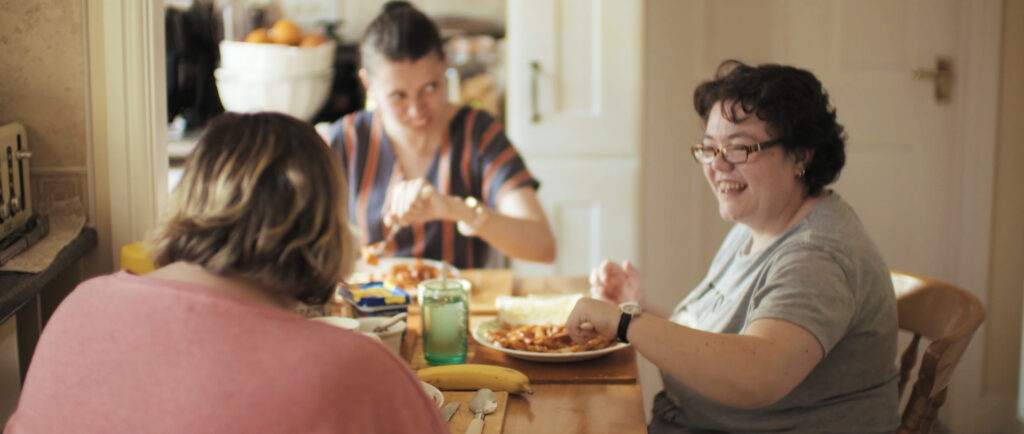We’re excited to announce that we’ve launched a brand–new research project in partnership with Manchester Metropolitan University. It’ll focus on understanding and addressing self-harm and suicide prevention in Shared Lives arrangements.
Disclaimer: When life is difficult, Samaritans are there – day or night, 365 days a year. You can call them for free on 116 123, email them at jo@samaritans.org, or visit www.samaritans.org to find your nearest branch
New UK stats about suicide rates
Sadly, suicide rates are at their highest right now in England and Wales since 1999. Information from the Office for National Statistics (ONS) also tells us:
- People with disabilities are at a significantly higher risk of suicide and in England
- People with long-term physical health conditions are 1.8 times more likely to die by suicide.
- The risk is even greater for those with mental health conditions, who are 4.6 times more likely to die by suicide.
Supporting people with mental health needs through Shared Lives
Shared Lives is a flexible form of social care that can support anyone who needs extra support to live their most independent life and it’s more commonly linked to supporting people with learning disabilities. In more recent years, Shared Lives has supported people with their mental health and emotional wellbeing to live significantly better lives.
According to Shared Lives Plus, 6% of people supported across all 145 Shared Lives providers in England and Wales (that’s 471 people) have a mental health need. In PSS 8.6% of the people we support have a mental health need. The nature of Shared Lives means that the support someone receives feels just like family life, helping people feel less isolated. Not just that, but people we support tend to get out and about more in their communities. Shared Lives grows people’s independence and we work hard to make sure that the right match is made between carer and supported person.

Aside from the quality of support on offer, it’s really cost effective. In fact, the public purse can save anything between £8,000 and £30,000 every year for every person who joins a Shared Lives arrangement in comparison to other social care services like supported living or care homes (that depends on the level of need and the commissioning local authority).
So, what’s the project about?
We’ve been working closely with Tom Harvey, Senior Lecturer in Mental Health Nursing at Manchester Metropolitan University for the past 18 months. Together we’ve collaborated on developing a research project examining self-harm and suicide in Shared Lives.
Self-harm and suicide are complex issues that are often misunderstood. This project is about listening to the voices of our carers and the people we support and using their experiences to inform better practices and policies in Shared Lives.

The project will involve carers and supported people sharing their experiences through interviews and focus groups. Supported people will take part in a one-time interview, while carers will be invited to join a 90-minute focus group. All contributions will be confidential and made anonymous.
Tom said:
‘We already know that PSS Shared Lives carers do an incredible job. Being a carer can be challenging, rewarding but also life changing for both the supported people and the Shared Lives carers. Nationally, we know there’s an increased number of people who are relying on Shared Lives with mental health issues and PSS are really keen to build on and strengthen their support in this area.’
Why this project is important
Last year, we held consultation sessions with our Shared Lives carers and the people we support to get a clearer picture of the complicated and sensitive challenges they face, particularly around self-harm and suicide prevention. We received a lot of valuable feedback and it became clear that we needed to explore these issues further with targeted research.
Simone McCaskill, head of quality at PSS, who is leading the project from the PSS side, explains:
‘We’re proud of the support we offer our carers but we know that there’s always more we can do. Suicides are preventable with timely, evidence-based interventions and this research project is a vital step forward in making sure our training and support services are grounded in real-life experiences and evidence.’
‘My biggest hope is that we can identify practical ways to support both carers and the people they care for when it comes to these sensitive issues. It’s about making sure that no one feels alone or unsupported. We also want to use this research to inform our training and support services, making sure they’re grounded in real-life experiences and evidence.’

Other research projects about Shared Lives and mental health
Studies around Shared Lives and its connection to better mental health isn’t new. In 2016, national membership body Shared Lives Plus took part in a mental health project with National Development for Inclusion that looked at the expansion of Shared Lives to support in a mental health capacity. Their recommendations said: ‘The evidence from interviews, change stories and tentative indications from the outcome measurement tool data suggests that Shared Lives can indeed deliver some very positive outcomes for people with mental ill health in terms of the mental health and wellbeing.’